Up to this point, Vietnam's coffee export turnover has exceeded the whole year of 2023 and set a new record of 4.84 billion USD in the first 11 months of 2024. In November 2024, the average export price of Vietnam's coffee reached 5,818 USD/ton, the highest level ever. With these achievements, Vietnam is facing the opportunity to dominate the global coffee market in the coming time.
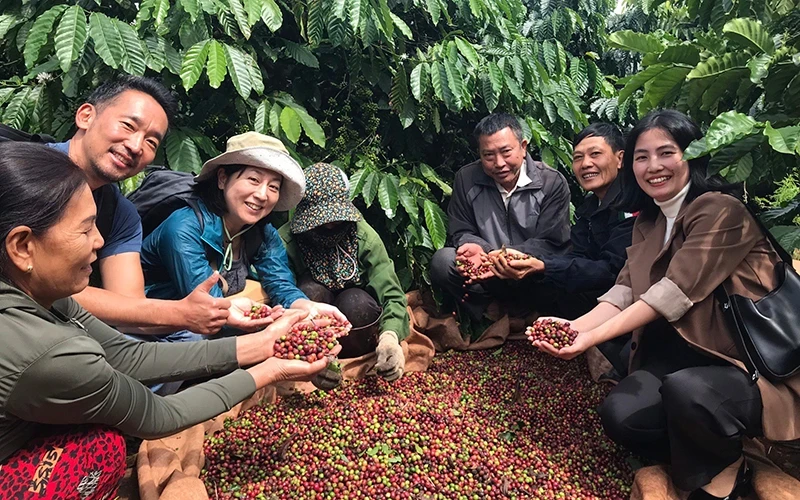
According to the Import-Export Department (Ministry of Industry and Trade), although Vietnam is in the harvest season, Robusta coffee prices in the domestic market are still increasing sharply following the increase in world coffee prices, ranging from 127,500-128,200 VND/kg. Coffee is also the agricultural product with the strongest price increase among Vietnam's key export products. In the first 11 months of 2024, the average export coffee price is estimated at 4,838 USD/ton, up 56.9% over the same period in 2023. Vietnam is currently the second largest coffee exporter in the world, after Brazil. At the end of 2024, world coffee prices continued to increase as investors increased purchases and feared supply disruptions.
In Brazil, coffee producers are holding back coffee in the hope of higher prices. In addition, forecasts of continued drought in Brazil's largest Arabica coffee producing region have also pushed up Arabica coffee prices. Meanwhile, in Vietnam, recent unfavorable weather has affected key coffee harvesting areas, posing the threat of disruption to the supply of Robusta coffee; at the same time, slow exports from Vietnam have tightened the world coffee market. It can be seen that with a sharp increase in coffee export prices and an advantage in supply, Vietnamese coffee is facing the opportunity to change its position in the world market. Currently, the export market for Vietnamese coffee is also increasingly diversified with key countries and regions such as the European Union, ASEAN countries, Korea, the US, Australia, etc.
In the EU, Germany is one of the major coffee import markets of Vietnam. According to statistics from the International Trade Center (ITC), in the first 8 months of 2024, Germany imported 945,800 tons of coffee from the world, worth 4.33 billion USD, up 7.1% in volume and 13.3% in value over the same period in 2023. In particular, the average import price of coffee from Vietnam to Germany increased sharply by 46.6% over the same period in 2023, to 3,592 USD/ton. In the first 8 months of 2024, Vietnam was the second largest coffee supplier to Germany, after Brazil, reaching 184,000 tons, worth 661.1 million USD, down 0.6% in volume, but up 45.6% in value over the same period in 2023.
For the Australian market, in the first 9 months of 2024, the average import price of coffee into Australia reached 5,862 USD/ton, an increase of 1.2% over the same period in 2023. Of which, the average import price of coffee from Vietnam increased sharply by 48.1% over the same period in 2023, to 3,674 USD/ton. Vietnam's coffee market share in Australia's total imports from the world increased from 11.85% in the first 9 months of 2023 to 15.29% in the first 9 months of 2024. Vietnam is the second largest source of coffee for the Australian market during this period. Australia's average coffee consumption is expected to reach 2.96 kg per capita in 2024. During the period 2024-2032, the Australian coffee market is forecast to grow at a compound annual growth rate (CAGR) of 3.6%. The development of e-commerce will also contribute to promoting Australian coffee consumption in the coming time.
However, to dominate the world market, in addition to dominating output, it is important that coffee quality is increasingly improved. As one of the leading companies in sustainable coffee production and export, Mr. Nguyen Tien Dung - Director of Sustainable Agricultural Development of Dak Lak 2-9 Import-Export Company Limited (Simexco Daklak) said that with the goal of "Developing with farmers", Simexco has been making constant efforts to build a supply chain model from farm to consumer. Accordingly, Simexco has built many sustainable development programs, aiming to implement the linked value chain: Economy-environment-society. Recently, the company is the only unit to achieve the Vietnam National Brand for the product "Coffee Beans" with sustainable cultivation areas, diverse products, especially Fine Robusta specialty coffee, helping to build and develop the value of Vietnamese coffee beans.
On the other hand, to increase export turnover, it is necessary to pay attention to the tastes and specific requirements of each market. Specifically, in Australia, certified organic coffee is increasingly popular because of its health benefits and environmentally friendly production. Consumers are willing to pay more for organically grown coffee. Therefore, to increase coffee exports to Australia, Vietnamese enterprises need to promote the export of high-quality products and specialty coffee. In the EU, the coffee industry needs to have an appropriate roadmap in implementing the EU Deforestation Prevention Regulation (EUDR).
Recently, the Ministry of Agriculture and Rural Development and the Sustainable Trade Initiative (IDH-Netherlands) also coordinated to organize the handover ceremony of the pilot results of the forest and coffee growing area database system in compliance with the EUDR Regulation. This is one of the effective tools to demonstrate to international partners that Vietnamese coffee is a product not related to deforestation in order to increase competitiveness in the international market. Currently, the application time of the EUDR has been postponed to December 2025 to ensure that global partners as well as Vietnam are fully prepared before the regulation comes into effect, paving the way for a sustainable future for the Vietnamese coffee industry.
Source


![[Photo] Nhan Dan Newspaper announces the project "Love Vietnam so much"](https://vstatic.vietnam.vn/vietnam/resource/IMAGE/2025/4/17/362f882012d3432783fc92fab1b3e980)

![[Photo] National Assembly Chairman Tran Thanh Man meets with outstanding workers in the oil and gas industry](https://vstatic.vietnam.vn/vietnam/resource/IMAGE/2025/4/17/1d0de4026b75434ab34279624db7ee4a)
![[Photo] Promoting friendship, solidarity and cooperation between the armies and people of the two countries](https://vstatic.vietnam.vn/vietnam/resource/IMAGE/2025/4/17/0c4d087864f14092aed77252590b6bae)
![[Photo] General Secretary To Lam receives French Ambassador to Vietnam Olivier Brochet](https://vstatic.vietnam.vn/vietnam/resource/IMAGE/2025/4/17/49224f0f12e84b66a73b17eb251f7278)
![[Photo] Closing of the 4th Summit of the Partnership for Green Growth and the Global Goals](https://vstatic.vietnam.vn/vietnam/resource/IMAGE/2025/4/17/c0a0df9852c84e58be0a8b939189c85a)



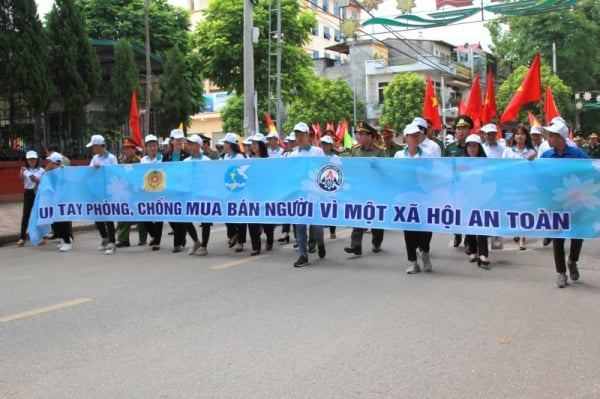



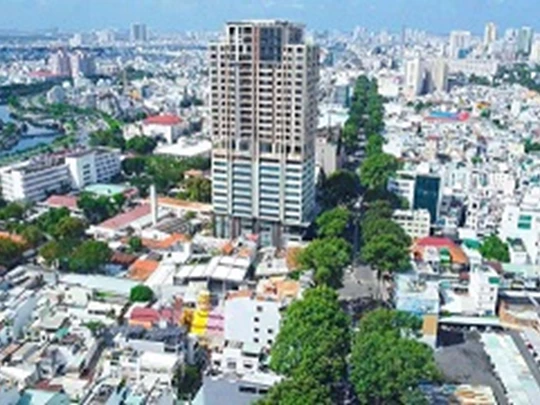

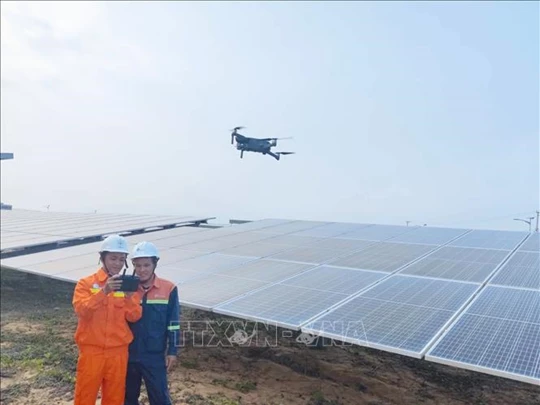


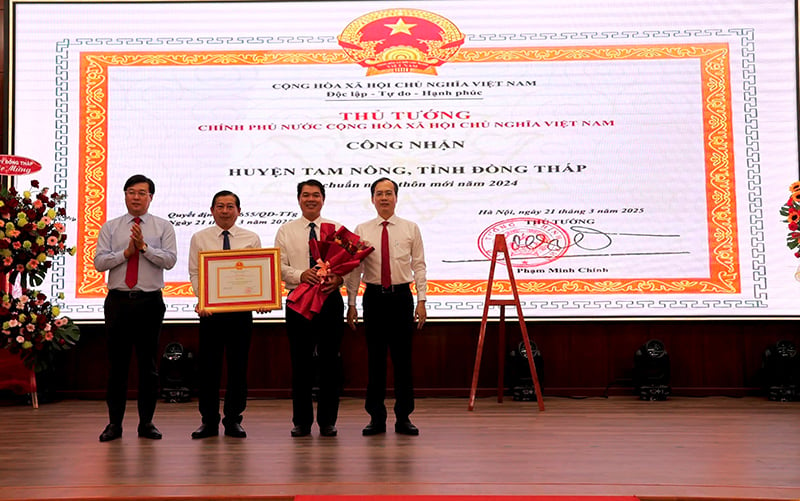
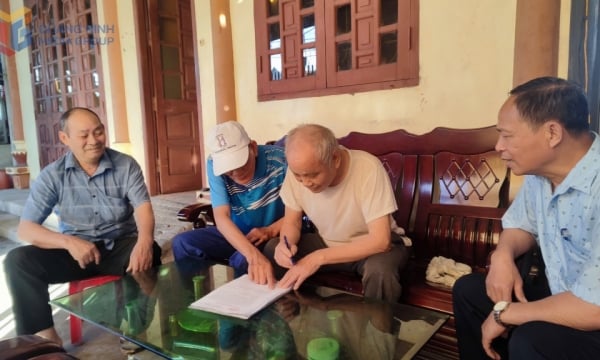
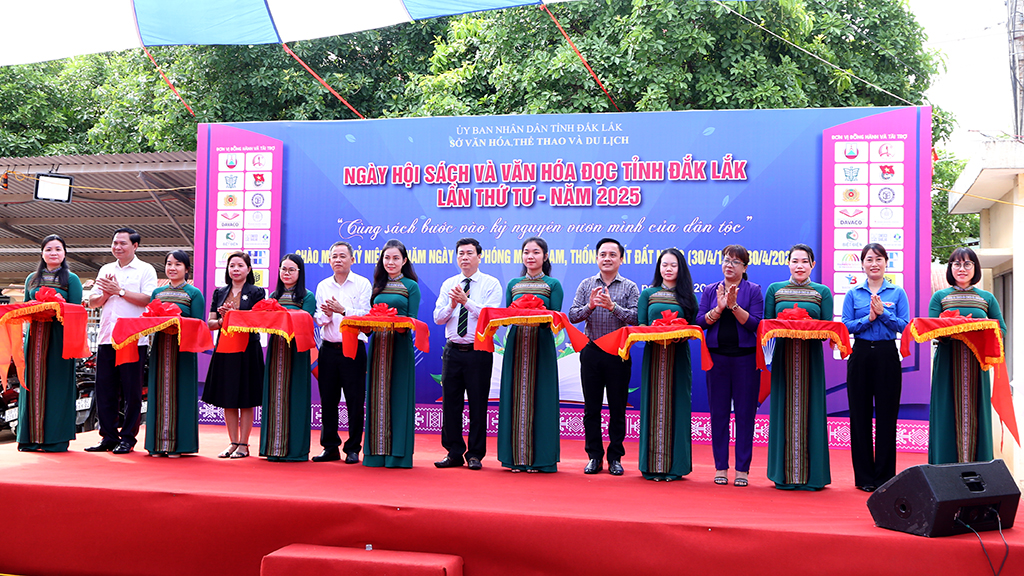











![[Photo] Welcoming ceremony for Chinese Defense Minister and delegation for friendship exchange](https://vstatic.vietnam.vn/vietnam/resource/IMAGE/2025/4/17/fadd533046594e5cacbb28de4c4d5655)




























![[Video] Viettel officially puts into operation the largest submarine optical cable line in Vietnam](https://vstatic.vietnam.vn/vietnam/resource/IMAGE/2025/4/17/f19008c6010c4a538cc422cb791ca0a1)






















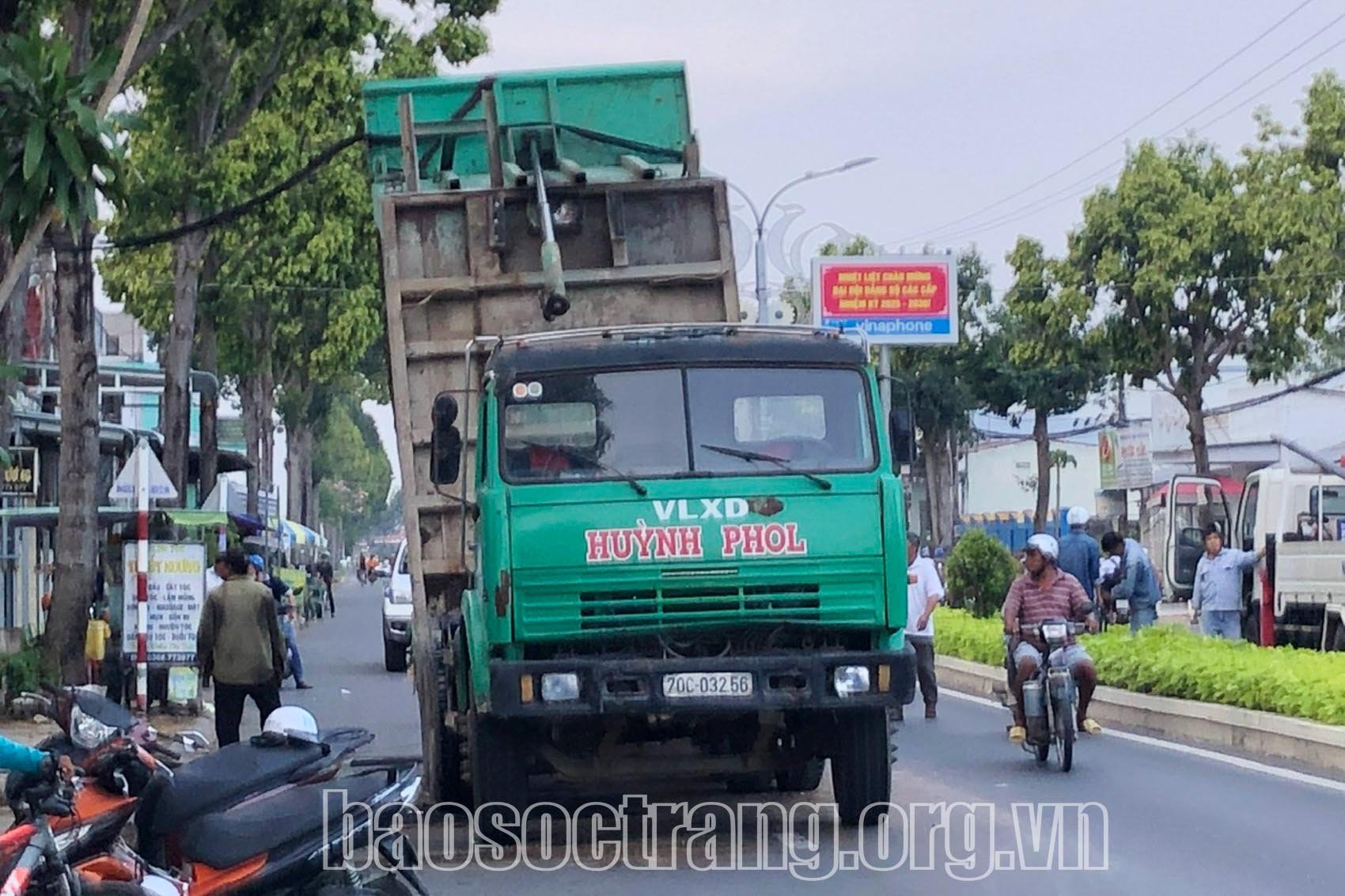


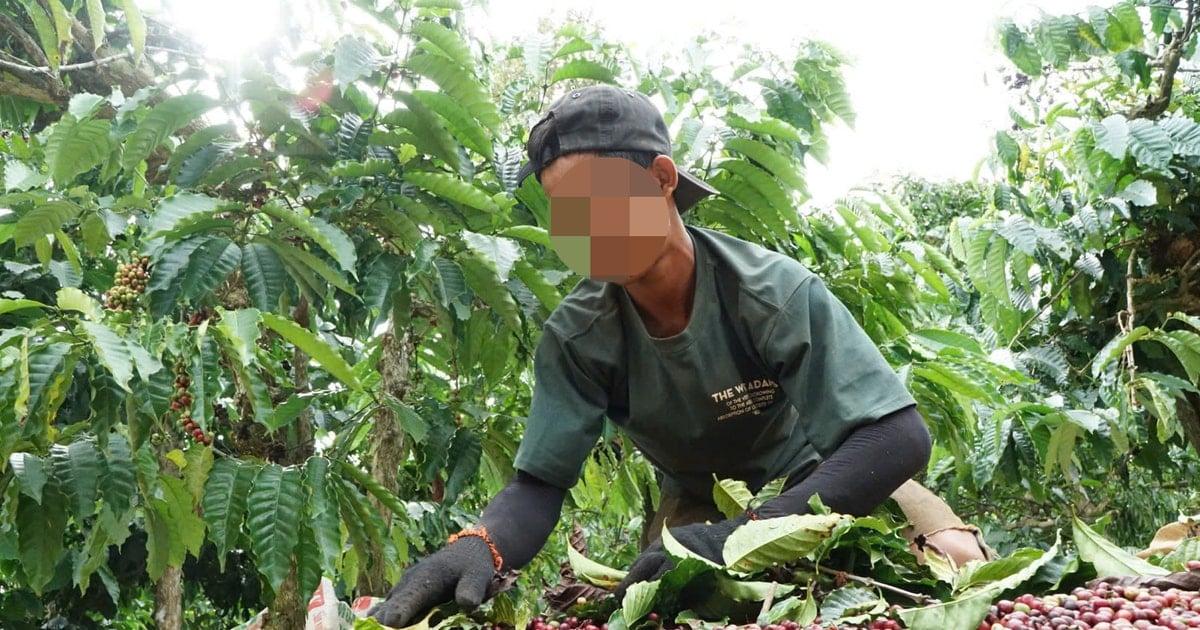











Comment (0)